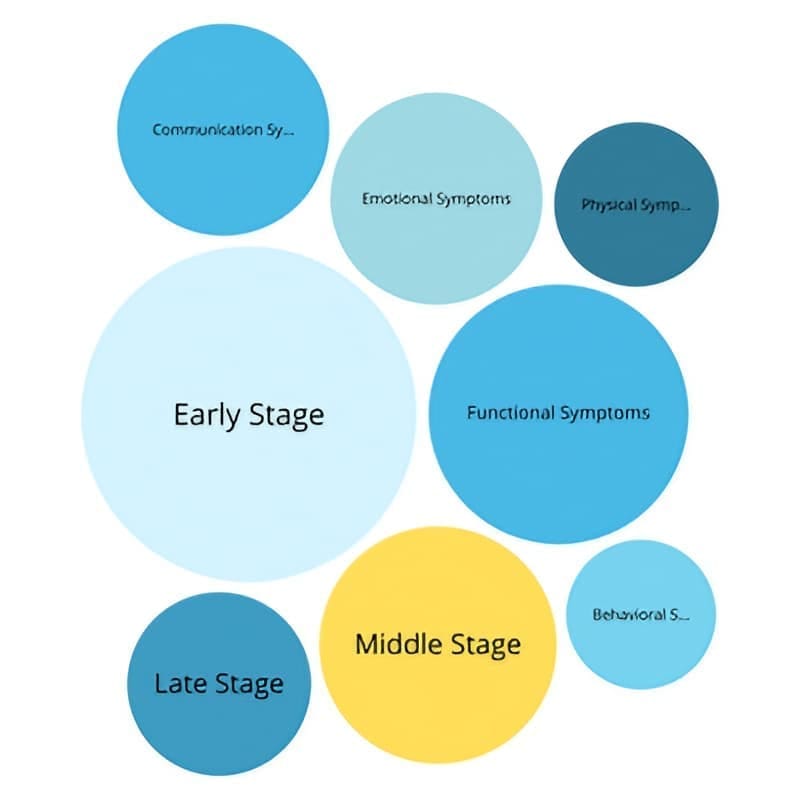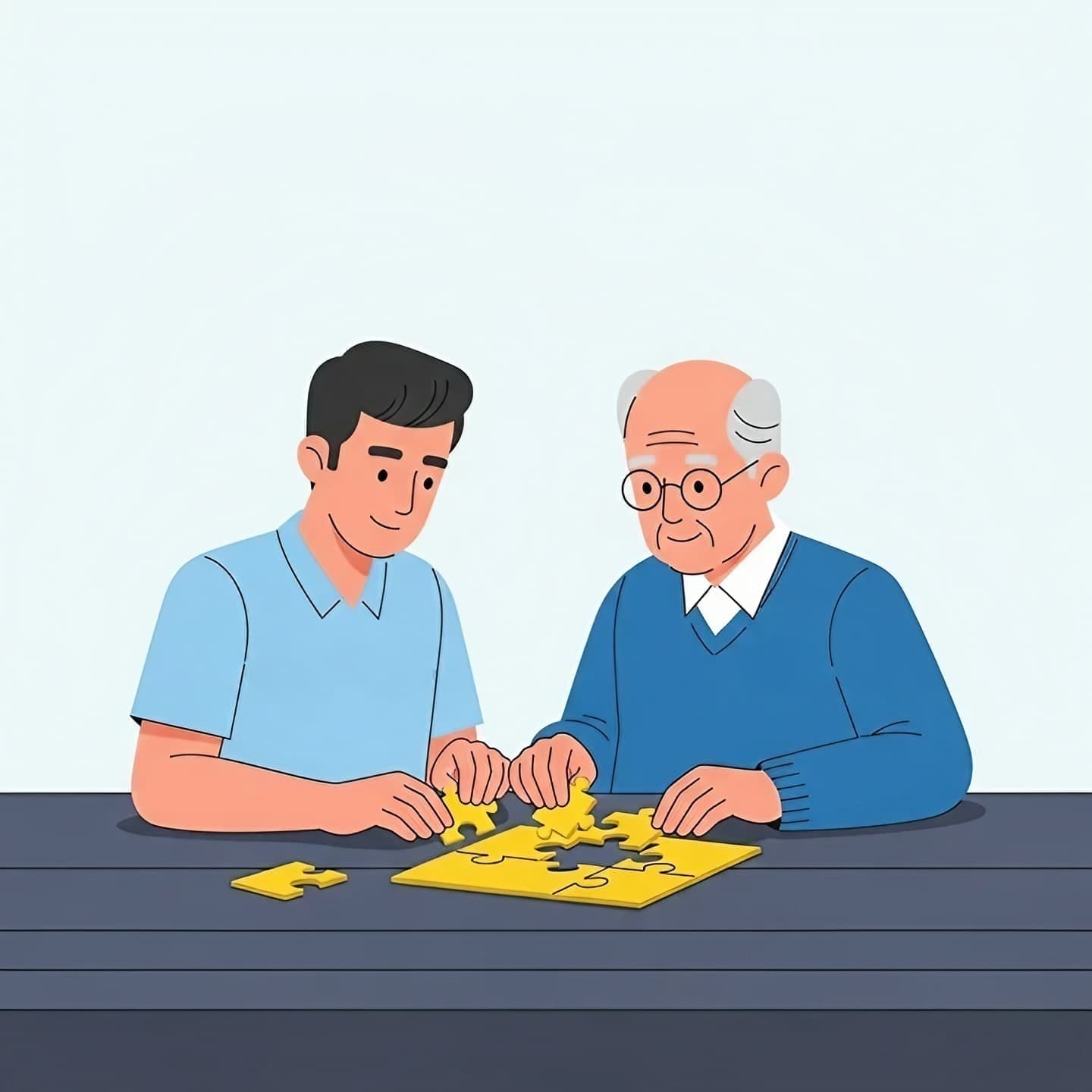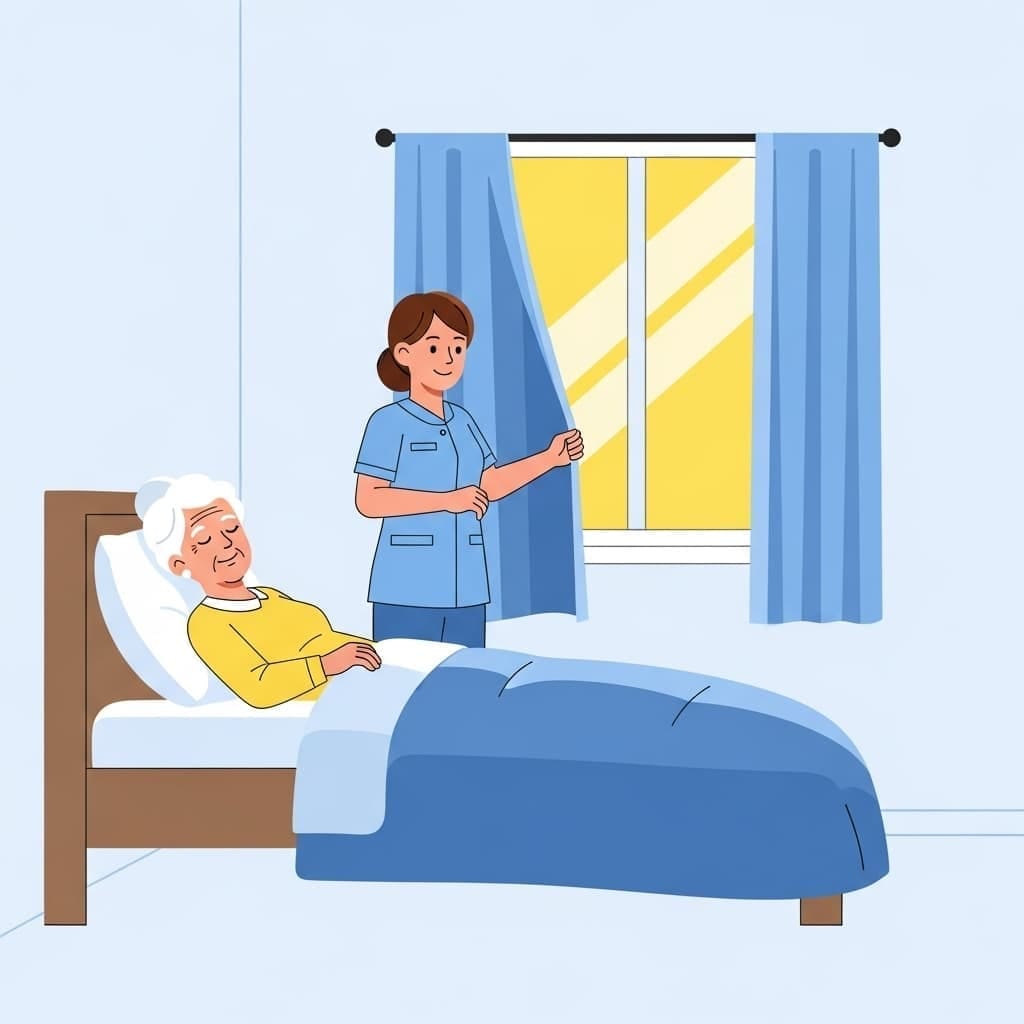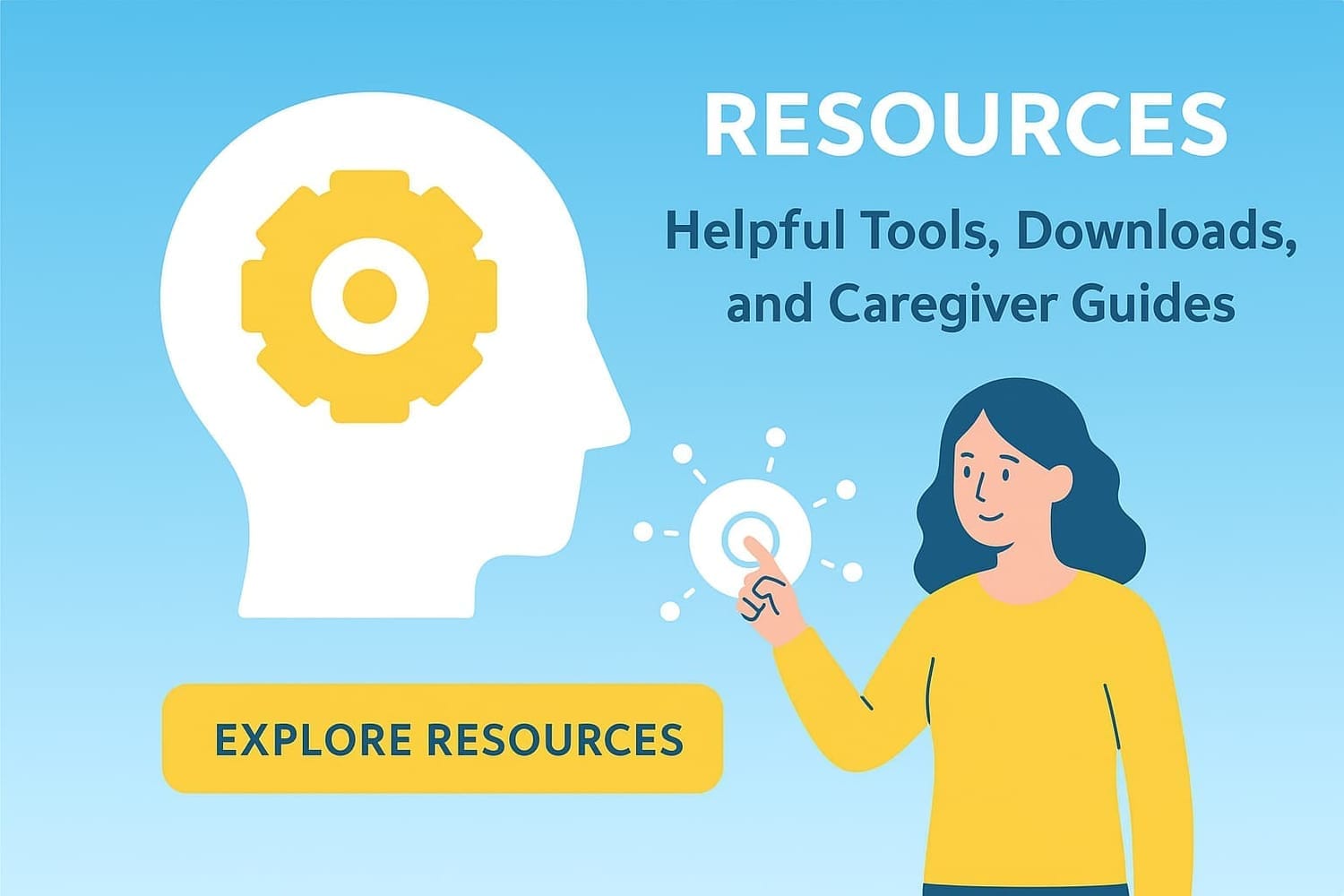Interactive Dementia Care Resources: Guides & Free Tools
Caring for someone with dementia can be challenging, but you don’t have to face it alone. In this hub, you’ll find tools, downloads, and guides created to give you clarity, ease your daily tasks, and bring comfort to both you and your loved one. Every resource is here to help you care with confidence, compassion, and hope.
1.🧠Understanding Dementia
Resources that provide clarity about dementia progression and help families start important conversations.
Dementia Stages Chart
An informative tool to understand dementia progression and its manifestations in daily life.
👉 View Tool


Is It Time to Talk?
A decision tree to guide conversations about dementia warning signs with loved ones.
👉 View Tool
2. 🩺Medical & Care Planning
Tools to support medical decision-making and professional care planning.
Questions to Ask Your Doctor
Structured worksheet for dementia concerns.
👉 View Tool


Is It Time for Additional Support?
This assessment helps families understand when professional help or hospice care might be beneficial for your loved one with late-stage dementia.
👉 View Tool
3. Daily Routines & Activities
Practical resources to improve everyday life for both the caregiver and the person living with dementia.
Routine Troubleshooting Tool
If your loved one shows X behavior, try Y activity.
👉 View Tool


Daily Routine Template for Middle Stage Dementia Care
A printable template to help structure daily activities and reduce stress in middle-stage dementia care.
Therapeutic Activity Guide for People Living with Dementia
A guide with engaging and therapeutic activities to stimulate memory, attention, and well-being.
👉 View Tool

FAQ
1. What are dementia care tools?
Dementia care tools are simple, practical resources created to support caregivers and families. They can include charts, guides, and worksheets that make it easier to track symptoms, plan daily routines, and encourage meaningful activities with your loved one.
2. How can these tools help caregivers?
These tools reduce stress by offering structure and guidance. For example, a daily routine template helps organize meals, exercise, and rest, while a therapeutic activity guide provides ideas to keep your loved one engaged and connected.
3. Are these resources free to use?
Yes. Many of our dementia care tools are available for free download, so you can start using them right away without cost.
4. Do you have tools to help manage difficult behaviors like agitation?
Yes. We offer resources designed to support caregivers in handling challenging behaviors such as agitation, restlessness, or confusion. These guides provide calming strategies and structured activities that can reduce stress for both the caregiver and the person with dementia.
5. Are these tools only for professional caregivers?
Not at all. They are designed for both families and professionals. Whether you are a spouse, child, or home nurse, these tools are easy to use and adapt to your situation.
6. Can I print these dementia care resources?
Yes. Most tools are available in printable format so you can keep them in a binder or on the fridge for quick reference. Caregivers often find it helpful to have a physical copy during daily care.
7. How do I know which tool to start with?
It depends on your current needs. If you are noticing early warning signs, the “Is It Time to Talk?” decision tree is a good first step. For middle-stage dementia, the daily routine template and troubleshooting tool can be very helpful.
8. Are these tools based on medical advice?
These resources are created with input from dementia care best practices and neuropsychological perspectives, but they are not a substitute for professional medical advice. Always consult your doctor for personalized guidance.
Remember: caring for someone with dementia is a journey you don’t have to walk alone. Use these tools and resources to support you every step of the way.
🩵 Want more free tools to make caregiving smoother? Join our list and get practical resources delivered to your inbox.
👉 Looking for more engaging ideas for seniors? Explore all our categories to find activities, sensory tools, and brain-boosting resources for every stage of dementia care.

Affiliate Disclosure:
This website contains affiliate links. If you click on these links and make a purchase, we may earn a small commission at no additional cost to you. These commissions help us keep this site running and allow us to continue creating helpful content to support caregivers and families.
